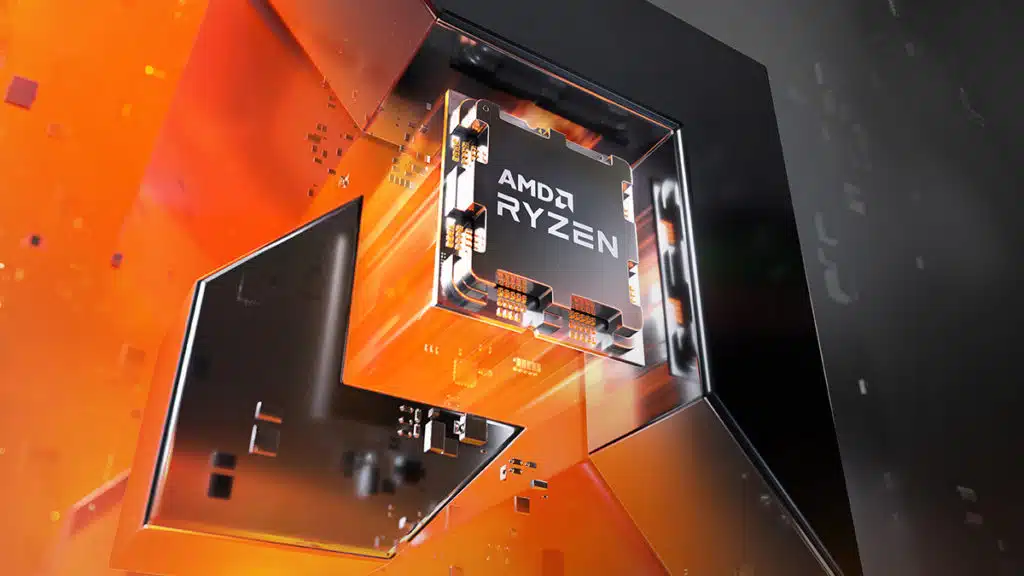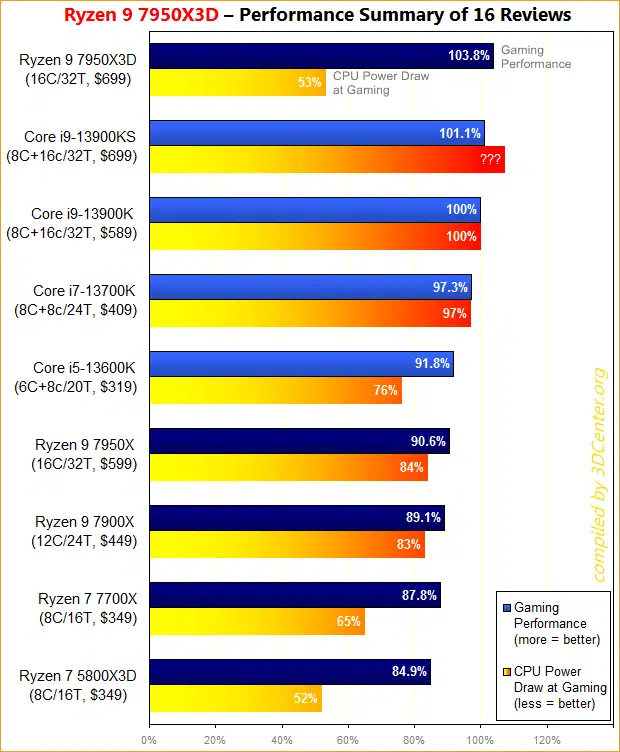
Reviews for the AMD Ryzen 9 7950X3D have been pretty positive, with what appears to be many benchmarks for red team’s flagship Ryzen processor with 3D V-Cache suggesting faster-on-average performance than Intel’s best Raptor Lake chips. A new performance summary of 16 reviews that 3DCenter.org recently compiled has now strengthened that sentiment, with benchmarks alluding to an average of 3.8% faster gaming performance for the Ryzen 9 7950X3D vs. the 13th Gen Intel Core i9-13900K. AMD’s option is also a bit faster than Intel’s Core i9-13900KS, which is advertised with a max boost clock of 6 GHz but falls short of the leading Zen 4 desktop CPU by 2.7%. The Ryzen 9 7950X3D also appears to be far more efficient than its competition.
From a 3DCenter.org report (machine translation):
Once again, the energy efficiency with which AMD achieves the performance is outstanding: In this regard, the regular Ryzen 7000 processors are not bad, but the Ryzen 9 7950X3D is absolutely the crowning glory: Moderate in terms of application tasks up to power Viruses, really suspicious of the energy saving label when used in games. If you are queer about the high power consumption values of the latest top processors from AMD & Intel, you have come to the right place. And especially when it comes to gaming, the Ryzen 9 7950X3D achieves dream ratings for energy efficiency: A slightly better gaming performance than the Core i9-13900K at an average of 53% of its power consumption under games results in almost double (!) energy efficiency.
At this point one has to say that Intel beats itself a little: The rising power consumption values in all benchmarks are simply based on how much maximum power limit Intel gives its processors. There are plenty of benchmarks that draw more power with a higher power limit for only a minimal or ultimately no performance gain. Intel certainly needs its high power limits in order to be able to keep up halfway with AMD in the multithread area. But when playing games, this is only a hindrance from an energy efficiency point of view, since Intel could work with the TDP as a power limit and would lose more or less nothing in terms of gaming performance. At this point, Intel has to ask itself whether it is driving the right product strategy.

